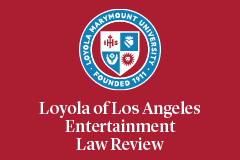Abstract
In the 2016-2017 term, the Supreme Court issued its opinion in Matal v. Tam, holding that the Lanham Act’s section 2(a) ban on disparaging trademarks—which prevents registration of any trademarks that the PTO deems to be disparaging to any groups or institutions—is unconstitutional. Although meant to only apply to section 2(a)’s ban on disparaging trademarks, the Court’s decision increases the likelihood that section 2(a)’s still-standing ban on scandalous and immoral marks are unconstitutional as well.
This Comment first reviews the basic principles of trademark law and the Lanham Act, summarizes Simon Tam’s legal battles, and briefly presents the conflicting case of Pro-Football v. Blackhorse. This Comment explores the failings of section 2(a)’s bans, its suppression of free speech, and its divergence from the goals of federal trademark law. Finally, this Comment analyzes Matal’s applicability to scandalous and immoral marks and Matal’s impact on future trademark registration in a consumer-driven marketplace.
Recommended Citation
Tanya Behnam,
Battle of the Band: Exploring the Unconstitutionality of Section 2(A) of the Lanham Act and the Fate of Disparaging, Scandalous, and Immoral Trademarks in a Consumer-Driven Market,
38 Loy. L.A. Ent. L. Rev. 1
(2017).
Available at: https://digitalcommons.lmu.edu/elr/vol38/iss1/1


